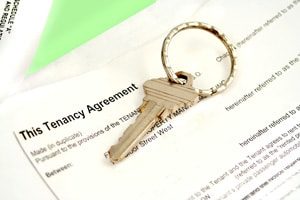 Tenants who don’t pay their rent are among a landlord’s worst nightmares. They’re taking up valuable space without paying for it, which leaves you in the lurch both financially and often legally. It’s important to approach a non-paying tenant the right way. At the end of the day, you’re in the right. Here’s some advice for dealing with late or missed rent.
Tenants who don’t pay their rent are among a landlord’s worst nightmares. They’re taking up valuable space without paying for it, which leaves you in the lurch both financially and often legally. It’s important to approach a non-paying tenant the right way. At the end of the day, you’re in the right. Here’s some advice for dealing with late or missed rent.
Sometimes tenants just have difficulty making rent on time for a number of reasons. That doesn’t help you get your money sooner, but if the tenant is otherwise reliable, there’s no need to go to extremes right away. Including a standard late fee or additional fee for bounced checks can go a long way toward discouraging late payments. Many tenants don’t want to be saddled with additional charges in addition to their rent payment. Make sure the application of a fee is in writing and agreed upon beforehand, whether in the leasing contract or as a separate document. If you own or manage multiple units, you should create a policy that is equally applied to all tenants to avoid a Fair Housing complaint.
When a tenant fails to make their rent, you are within your rights to serve three-day notice. This means you’re requiring the tenant to either pay rent within three days or forfeit the property. It should be noted that you cannot force a tenant to move within three days, and you cannot lock them out of the property or hold their things. However, if they fail to pay within the allotted time, you may move forward with an eviction lawsuit or unlawful detainer. Some tenants will vacate the property within the given timeframe rather than have their record marked by an eviction.
In order for three-day notice to be binding, you must include a number of things in writing, including the tenants’ full name or names, the amount they owe, the address of the rental property, and more. The notice must be given to the tenant directly, though it can be posted on their door so long as a copy is also sent in the mail. Consult your local regulations for all the information. It’s important to comply, because an improper form can cause legal trouble later.
If the tenant fails to pay or vacate and becomes an unlawful detainer, it’s time to consult an eviction attorney. A lawyer will advise you and help you take the right steps toward evicting a troublesome or non-paying tenant. If you are uncomfortable with the notice preparation and service, most landlord attorney will perform this service also.
For help with property management and finding a trusted eviction lawyer, we recommend contacting us at PURE Property Management. An experienced property manager will take the stress and concerns out of managing your property and dealing with problem tenants. We’ll help you get your property back on the market smoothly and quickly.





 Nicole Burns
Nicole Burns

 Katie O’Brien
Katie O’Brien

 Matthew Johnson
Matthew Johnson Nicki Teldeschi
Nicki Teldeschi David Carlson
David Carlson